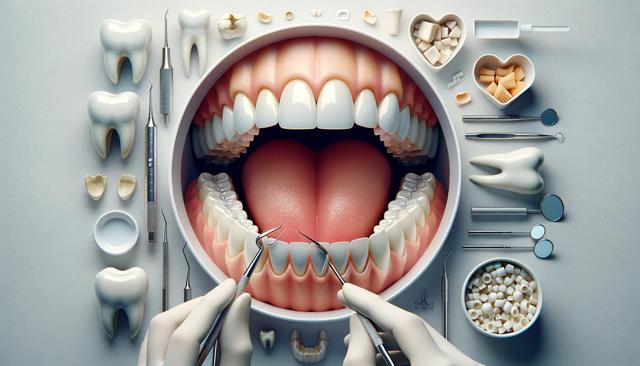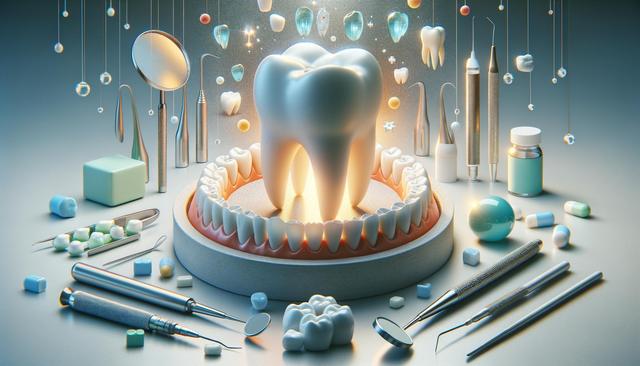Understanding the Impact of Damaged or Missing Teeth
When teeth are broken, chipped, or missing, it affects more than just your appearance—it can also impact your overall oral health. Damaged teeth can lead to further complications such as infection, increased sensitivity, and difficulty chewing. When a tooth is missing, nearby teeth can shift, leading to misalignment and changes in your bite. Addressing these issues promptly with proper dental care is crucial for maintaining long-term dental function and preventing additional concerns.
Ignoring dental injuries can result in more costly and complex procedures down the line. Whether it’s a small chip or a fully missing tooth, early intervention offers the best chance to preserve your natural teeth and prevent further deterioration of your smile. Fortunately, skilled dentists offer a range of personalized treatment options tailored to each patient’s needs and the severity of the damage.
Common Causes and Types of Tooth Damage
Tooth damage can result from a variety of causes, including trauma, decay, or habits such as teeth grinding. Understanding the source of the issue is essential for determining the most effective treatment. Some of the most common forms of tooth damage include:
- Chipped teeth from biting hard objects or accidental impact
- Cracked or fractured teeth due to injury or pressure
- Broken teeth caused by untreated decay or cavities
- Missing teeth resulting from advanced gum disease or extraction
Each type of damage requires a specific approach to repair and restore function. For example, a small chip may only need cosmetic bonding, while a broken tooth might require a dental crown. Missing teeth often call for more comprehensive solutions such as dental implants or bridges. By identifying the type and cause of the damage, a dentist can provide effective solutions to restore both aesthetics and oral function.
Personalized Treatment Options for Tooth Restoration
Modern dentistry offers a wide variety of restorative treatments to address chipped, broken, or missing teeth. These treatments are designed to improve both the appearance and structural integrity of your teeth. Depending on your unique dental needs, your dentist may recommend one or more of the following options:
- Dental bonding for minor chips and cracks
- Crowns to restore the shape and strength of broken teeth
- Veneers for improving the appearance of front teeth
- Bridges or implants to replace missing teeth
Each treatment is customized based on the location and severity of the damage, as well as your overall oral health. Skilled dentists use advanced materials and techniques to ensure that restorations are durable and blend naturally with your existing teeth. With the right care, these solutions can last for many years, providing both functional and aesthetic benefits.
The Role of Preventive Care and Early Intervention
Preventive dental care plays a vital role in reducing the risk of tooth damage and ensuring long-term oral health. Regular check-ups and cleanings allow your dentist to detect early signs of wear, decay, or other issues that could lead to broken or chipped teeth. Early intervention not only minimizes discomfort but also often results in less invasive and more cost-effective treatments.
Some preventive strategies include:
- Wearing a mouthguard during contact sports
- Managing teeth grinding with custom night guards
- Maintaining good oral hygiene to prevent decay
- Addressing dental concerns as soon as they arise
By staying proactive with your dental care, you can significantly reduce the likelihood of tooth damage. For those who already have broken or missing teeth, seeking timely care can prevent complications such as infections or bone loss in the jaw. Dentists not only repair existing damage but also help you develop a plan to protect your teeth moving forward.
Choosing the Right Dental Clinic for Your Needs
When it comes to repairing chipped, broken, or missing teeth, choosing the right dental clinic is essential. Look for a practice that offers comprehensive services and experienced professionals who specialize in restorative dentistry. A well-regarded clinic will begin with a thorough examination and may use imaging technology to assess the extent of the damage before recommending a treatment plan.
Key factors to consider when selecting a dental clinic include:
- Experience and qualifications of the dental team
- Availability of modern technology and treatment options
- Patient-centered approach and personalized care plans
- Clear communication and transparent pricing
Many dental clinics also provide flexible scheduling and consultation services to discuss treatment options and expected results. By partnering with a skilled dental team, you can feel confident in the quality of care you receive and the long-term success of your treatment.
Conclusion: Take the First Step Toward a Healthier Smile
Addressing broken, chipped, or missing teeth promptly is key to maintaining your oral health and restoring your confidence. With a range of personalized treatment options available, skilled dentists are ready to help you regain function and improve the appearance of your smile. Don’t wait—taking early action can make a significant difference in your long-term dental well-being. Visit the dental clinic website to explore your options and take the first step toward a healthier, more complete smile today.


